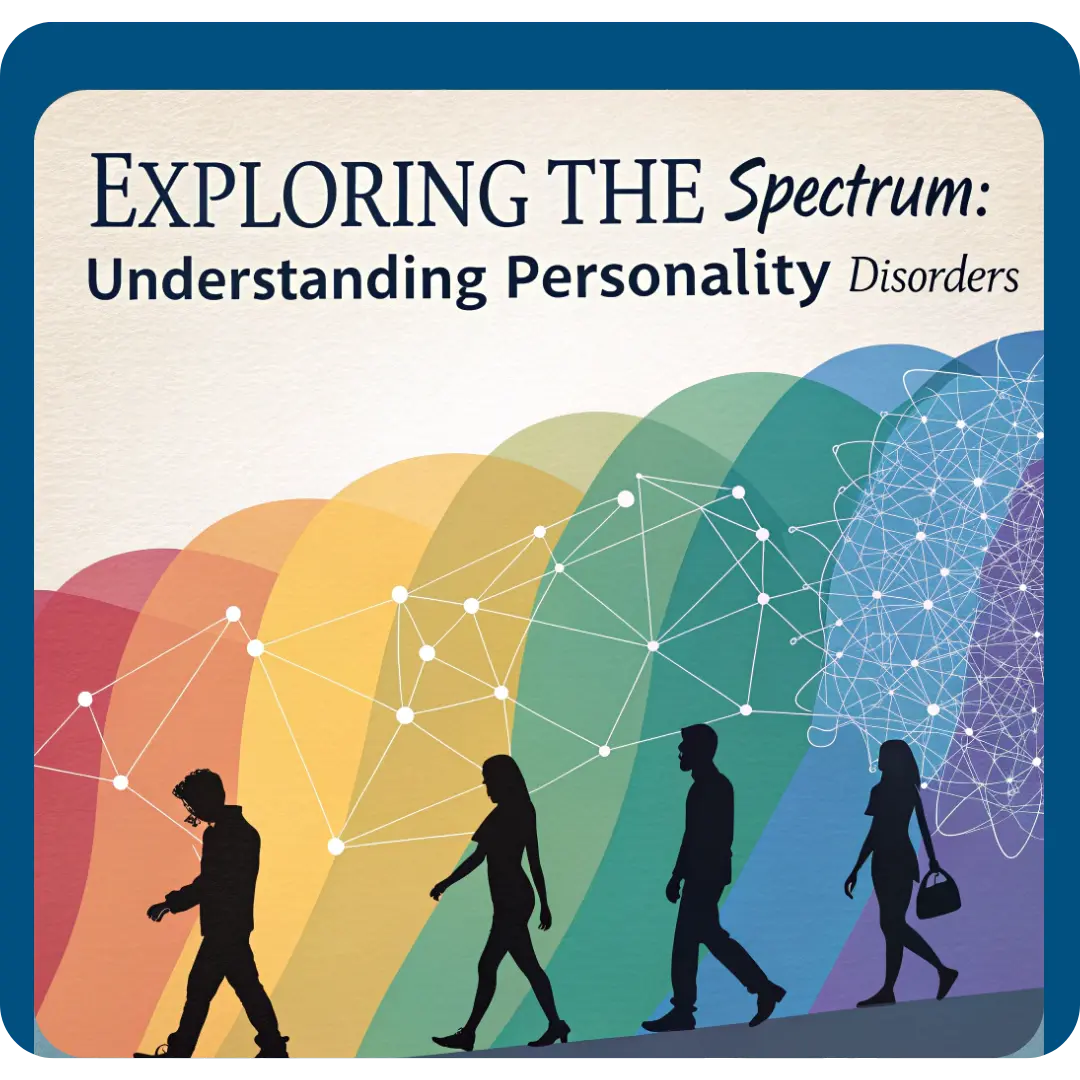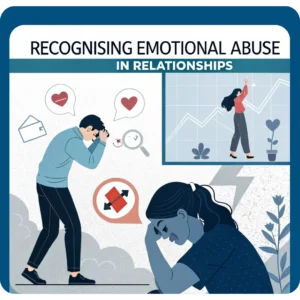Personality is what makes each of us special and different from everyone else. Some people really stand out because they have strong and unique qualities. On the other hand, some people might not seem very interesting because they don’t have those special traits. Depending on how someone affects us, we might think they have a good personality or a not-so-good one.
As per the American Psychological Criteria, the DSM-IV, there are 10 identifiable personality traits linked to an individual’s thinking and behaviour that may predispose them to developing personality disorders. However, the DSM-IV highlights four primary characteristics present across all personality disorders. These four key traits are crucial in discerning between a normal and unhealthy personality.
The initial characteristic within this framework involves altered or atypical thinking patterns. The second trait revolves around inflexible emotional responses that pose challenges. Thirdly, there’s a focus on śimpulse control, where individuals with disorders struggle to articulate clearly and resist urges. Lastly, significant interpersonal issues serve as the fourth core element of personality disorders.
Cluster A
Cluster A includes personality disorders characterised by social isolation or behaviours that are not well-adapted to social situations. Two common types are Paranoid personality disorder and Schizoid personality disorder.
In paranoid personality disorder, individuals have a strong lack of trust in others. They believe that people around them always mean harm, so they avoid social interactions and gatherings to protect themselves. They often feel jealous and hostile due to their emotional struggles.Imagine someone who is always suspicious of others’ intentions. For example,they might believe that their coworkers are trying to undermine them or that their friends are secretly plotting against them. As a result, they avoid social gatherings and keep to themselves to protect against perceived threats.
Schizoid personality disorder also leads to social disconnection. People with this disorder tend to isolate themselves from society and have difficulty in their relationships with others. They may seem insensitive, distant, and prefer solitary activities.Think of a person who prefers to spend most of their time alone and doesn’t seem to have much interest in forming close relationships. They might spend hours immersed in solitary activities like reading or playing video games, avoiding social interactions whenever possible.
Schizotypal personality disorder is another type where individuals have unique characteristics like being reserved and avoiding social events. It’s thought to have a genetic basis and can cause perceptual distortions, like seeing things that others don’t, which can resemble psychosis. Picture someone who has peculiar beliefs or behaviours that others find strange. For instance, they might believe they have special powers or can communicate with supernatural beings. They may also experience perceptual distortions, like seeing patterns or hearing voices that others don’t perceive. These experiences can lead to social isolation as others may find them eccentric or hard to relate to.
Cluster B
Cluster B includes various personality disorders characterised by impulsivity and difficulties in regulating emotions.
Antisocial personality disorder. People with this disorder often engage in illegal activities, display irresponsible behaviour, and can be hostile towards others, especially without feeling guilty. They tend to show overt aggression, and this behaviour is often seen in young individuals.Imagine someone who repeatedly breaks the law without feeling guilty. For instance, they might steal from others, lie, or even physically harm people without remorse. They may disregard the rights and feelings of others and often show aggressive behaviour.
Histrionic personality disorder is another disorder in this cluster, characterised by dramatic behaviour and a constant need for attention. Individuals with this disorder may exaggerate events to make themselves seem more important and become upset if they don’t receive individual attention. They are easily influenced by others’ opinions.Think of a person who constantly craves attention and exaggerates their emotions and actions to get it. For example, they might always need to be the center of attention in social situations, often speaking loudly or dramatically. They may become upset if they feel ignored or overlooked.
Narcissistic personality disorder is marked by arrogance, a sense of entitlement, and self-obsession. Picture someone who believes they are superior to others and deserves special treatment. They might constantly talk about their achievements and expect admiration from those around them. They may have a grandiose sense of self-importance and lack empathy for others.people with this disorder expect special treatment from others and place great importance on their social status.
Borderline personality disorder involves sudden mood swings and unstable emotions. Individuals with this disorder may take a long time to calm down after becoming upset and struggle with impulsivity and sudden outbursts of anger. They may also have eating disorders and difficulty maintaining consistent work or relationships due to their inconsistent behaviour. Consider someone who experiences intense mood swings and struggles with impulsivity. For instance, they might have sudden outbursts of anger or engage in risky behaviours like reckless driving or substance abuse. Their relationships may be tumultuous, with frequent conflicts and a fear of abandonment.
Cluster C
Cluster C comprises personality disorders characterised by heightened anxiety.
Avoidant personality disorder Individuals with this disorder often have feelings of inferiority and fear social rejection. They avoid social situations and responsibilities due to a belief that they lack necessary qualities, leading to a small social circle and poor social skills. Imagine someone who constantly feels inadequate and fears being reject or ridiculed by others. For example, they might avoid social gatherings or speaking up in meetings because they worry about being judge. Their fear of embarrassment and criticism leads them to have few close relationships and avoid situations where they might be put on the spot.
Dependent personality disorder involves relying heavily on others for decision-making and completing tasks, lacking leadership qualities and independence. Individuals with this disorder struggle to make decisions and tend to defer to others’ opinions without question.Think of a person who always relies on others to make decisions and take care of tasks, even small ones. For instance, they might constantly seek reassurance from others before making any decisions or struggle to do things on their own without someone guiding them. They may feel lost or anxious when they’re not receiving help or support from others.
Obsessive-compulsive disorder (OCD) is marked by perfectionism in all areas of life. People with OCD rigidly adhere to routines and struggle to adapt to changing circumstances. Social relationships may suffer as a result, and tasks may go unfinished due to excessive perfectionism. OCD also involves difficulty in delegating tasks or responsibilities. Picture someone who is obsessed with orderliness and perfectionism. For example, they might spend hours organising and rearranging things in a specific way or have rituals they feel compelled to perform to alleviate anxiety. They may struggle to relax or enjoy activities because they’re so focus on adhering to their strict routines and standards.
Things you can do
There aren’t special medications for personality disorders, However, in some cases, may be helpful in treating some symptoms. More severe or long-lasting symptoms may require a team approach involving a primary care doctor, a psychiatrist, a psychologist, a social worker and family members.
Besides getting help, there are things you can do for yourself:
- Learn about what’s going on. Knowing more can help you feel stronger and more motivated.
- Get moving! Exercise can help with feeling down, stressed, or worried.
- Stay away from drugs and booze. They can make things worse or mess up with any meds you’re taking.
- Don’t skip regular checkups with your doctor.
- Hang out with others who get what you’re going through.
- Write down how you feel in a journal.
- Try out calming stuff like yoga or meditation.
- Stay connected with your loved ones and don’t shut yourself away.
- Don’t do self assessment for any of these personality disorders. Seek professional help, as required.
- Explore alternative healing modalities like Regression Therapy, Family Constellations, Past Life Regression and Access Facilitations.
Some of the major breakthroughs for healing personality disorders have been accomplish with unconventional modes of treatments. Some of these interventions have been mention by Susanna Mittermaier, an American clinical psychologist, in her book “Pragmatic Psychology”. Another interesting work in this field is do by Marilyn Bradford, an international speaker and psychotherapist on addictions and related disorders. Access Consciousness offers a unique perspective on what society labels as ‘disabilities’. What if conditions like autism, OCD, ADD, and ADHD are actually abilities? What if transforming symptoms of conditions like insanity, paranoid schizophrenia, bipolar disorder, PTSD, and panic attacks with nervous breakdowns is simpler than you think?
Here are some of the questions you can begin with to start thinking differently about the personality disorders:
- What am I aware of about these personality traits?
- What do I know about this that no one else knows?
- What is right about this?
- How can I use this to my advantage?
- What else is possible?
These may appear very simple and basic questions yet they are immensely potent in creating a change. Ask these questions everyday at least 30-50 times and allow the awareness to come to you. There is a molecular shift that occurs within our bodies when we ask questions. When we don’t label, we allow a different possibility to show up.
You can reach out to us at the Treta Foundation, to know more about the unique interventions to heal and transform personality disorders into your potency.
–
Natasha Arora
Clinical Psychologist and Research Executive at Treta Foundation.





This was such a well-explained guide on Personality Disorders. I appreciate how clearly the different types were outlined — it really helps reduce the stigma around these conditions. Great job!